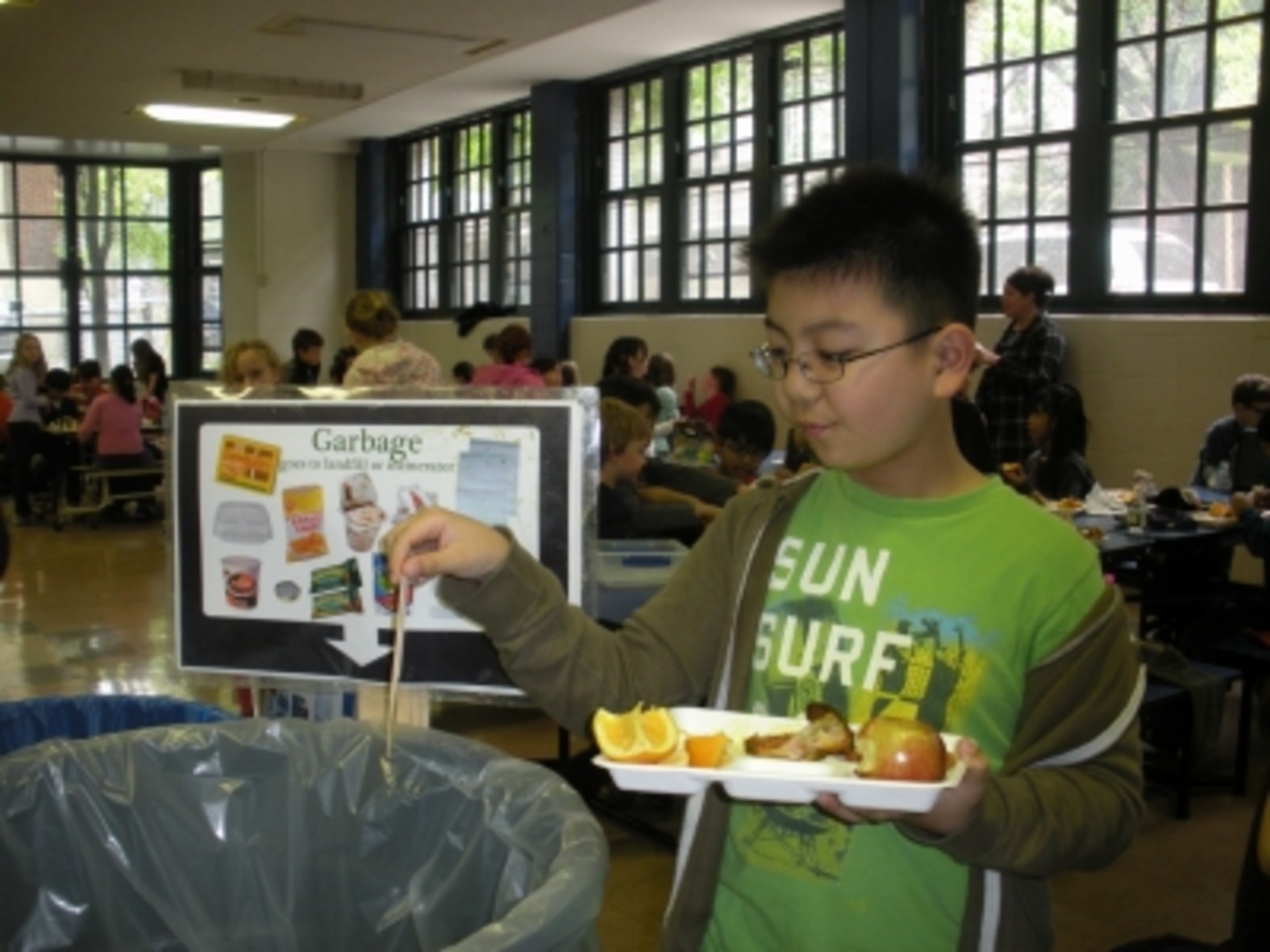Moms piloted successful compost program

Five Manhattan moms started composting programs in their schools' cafeterias this year that saved 450 pounds of food waste from landfills daily and reduced the volume of cafeteria garbage by 85% in eight schools over four months.
The parents, members of the District 3 Green Schools Group, were part of a pilot program designed to test the viability of separating and composting food waste – including meat and dairy, kitchen scraps, and sugar cane food service trays.
"We were upset that we were paying for sugar cane compostable trays and they were being thrown in the garbage," said Emily Fano, a parent at PS 166, one of the eight participating schools in four buildings.
The moms were assisted by a composting consultant, Laura Rosenshine, who arranged for a waste solutions company, IESI, to donate collection services along with composting bins, compostable liners, signage, and digital scales.
The pilot program ran from February through June 27, the last day of school, but parents plan to continue it next year and hope that it will expand.
"If all New York City schools could compost, it would be an incredible achievement towards meeting the city's goal of reducing solid waste by 75 percent" said Fano. "New York City generates 14 million tons of garbage each year and food waste is 18 percent of the waste stream."
The pilot team collectively decreased the number of garbage bags used in their cafeterias daily from 54 to 8. The group estimates that this would amount to an annual cost savings of more than $3,000 per year for garbage bags, and an estimated annual savings of more than $3,700 in garbage disposal fees, for the four pilot buildings. Extrapolated to the whole school system, they estimate cost savings of more than $1 million annually in garbage bags and more than $1.1 million in garbage disposal fees. A positive byproduct was that the program increased the recycling of bottles, cans, juice and milk cartons in school cafeterias, Fano said.
At a June 19 awards ceremony honoring the Department Of Education custodial, SchoolFood and teaching staff who were involved in the pilot, the city's sanitation commissioner, John Doherty, praised the mothers for their role in orchestrating the "major reduction in the waste that has to go to landfill." He said he hoped the program could continue in the fall and expand to include 20 schools in the district.
In addition to PS 166, the participating pilot schools were: PS 199, The Anderson School, The Computer School, PS 452, Manhattan School for Children, MS 256 Academic and Athletic Excellence and MS 258 Community Action School.
Below see a slideshow presented on June 19.
Please Post Comments